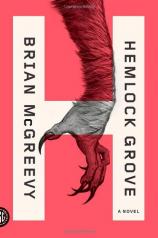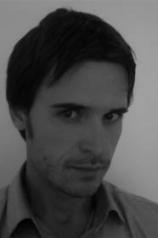Reading Group Guide
Discussion Questions
Hemlock Grove

1. HEMLOCK GROVE begins with the following quote: “The lone wolf howls to rejoin the pack from which he is separated. But why does the pack howl when no wolf is lost? Isn’t it obvious? Because there is no other way to say it.” How does this set the tone for the novel?
2. Early in the novel, Christina Wendall asks Peter if he’s a werewolf, and he matter-of-factly tells her that it’s true. Do you think he wants her to believe that he is or that he isn’t? Why does he handle her question this way?
3. Peter thinks that “pain was as much a part of this life as the summer and the winter and the rain, and there was no greater asshole than the one who believed you can cure it. That you ought to” (page 65). Do you agree with this sentiment? Peter considers himself a realist, not a defeatist. What do you think of his self-assessment?
4. Throughout HEMLOCK GROVE, Brian McGreevy uses language to create vivid, humorous images, such as: “Every time she used his name it was putting a pat of butter on a slice of botulism” (page 68) or “It is not so much that Letha revised her opinion as that the bottom of her heart fell open and swung slowly back and forth on its hinge” (page 86). How did these images help you picture the story in your head? What are some other lines that jumped out at you?
5. While the other characters’ oddities or differences are guessed at but not known for sure by the people of Hemlock Grove, Shelley’s are external, visible to everyone. Why do you think the author made her physically so different from everyone around her? What does she represent?
6. Christina is getting ready for her first date, with the help of the twins Alexa and Alyssa Sworn. “She had not been conferred with a practical sense of how one went about this strange and all inverted business of being a girl, where seemingly natural stuff like going on about all the great things you just learned about Siberian tigers on National Geographic was suddenly weird, but totally weird stuff in and of itself like drawing around your eyeball with a pencil became normal” (page 156). In what other ways are the teenage characters in HEMLOCK GROVE coming of age, learning about themselves as they attempt to solve the mystery?
7. When he’s alone, Dr. Pryce speaks out loud, pretending to be dictating his memoir. What does this tell you about his character and his motivation?
8. Peter’s biggest fear is “the cage.” What is the cage? What does it represent to him?
9. Dr. Chasseur thinks of Roman as “a narcissistic, insecure, oversensitive, and underparented adolescent heir to a Fortune 500 company with a substance abuse problem and homoerotic tendencies” (page 193). Do you think this description of Roman is apt? Is it overly harsh? How would you describe him? How would you describe Peter?
10. Although most of the novel is told from the point of view of the narrator, we learn more about some of the characters, particularly Shelley and Norman Godfrey, through their exchange of letters. What did you think of this device? Did it enhance your reading experience?
11. Letha embraces her pregnancy calmly, seemingly with complete acceptance. At more than one point in the novel, those closest to her suspect that she’s going crazy. What did you think of her reaction to her predicament? Did you suspect she was insane?
12. Even as the characters are fighting for their lives, Brian McGreevy shows moments of normalcy amidst the chaos: first dates, kids going to school, people falling in and out of love. For the most part, do you think the characters were more human or monster?
13. Dr. Godfrey hates the family business and what it stands for. Why doesn’t he walk away from it? Why does he feel so tied to it?
14. Peter says that “however different from the rest of the world Roman felt, he was still rich and so tolerably different” (page 184). How do issues of class and wealth play into HEMLOCK GROVE?
15. Throughout the novel, Peter relies on his Swadisthana chakra, or instincts, when it comes time to make decisions. Do you think this practice works for him? You may want to bring an illustration of the chakras and where on the body they’re located to your book club.
16. Peter occasionally mentions his Roma heritage in HEMLOCK GROVE. What do we learn about the culture from what he says? What part do you think it has played in making him the person he is?
17. The overarching struggle in HEMLOCK GROVE is between good and evil. Ultimately, what side of that divide do you believe Roman falls on?
Hemlock Grove
- Publication Date: March 27, 2012
- Genres: Fiction, Mystery, Science Fiction, Suspense
- Paperback: 336 pages
- Publisher: FSG Originals
- ISBN-10: 0374532915
- ISBN-13: 9780374532918








